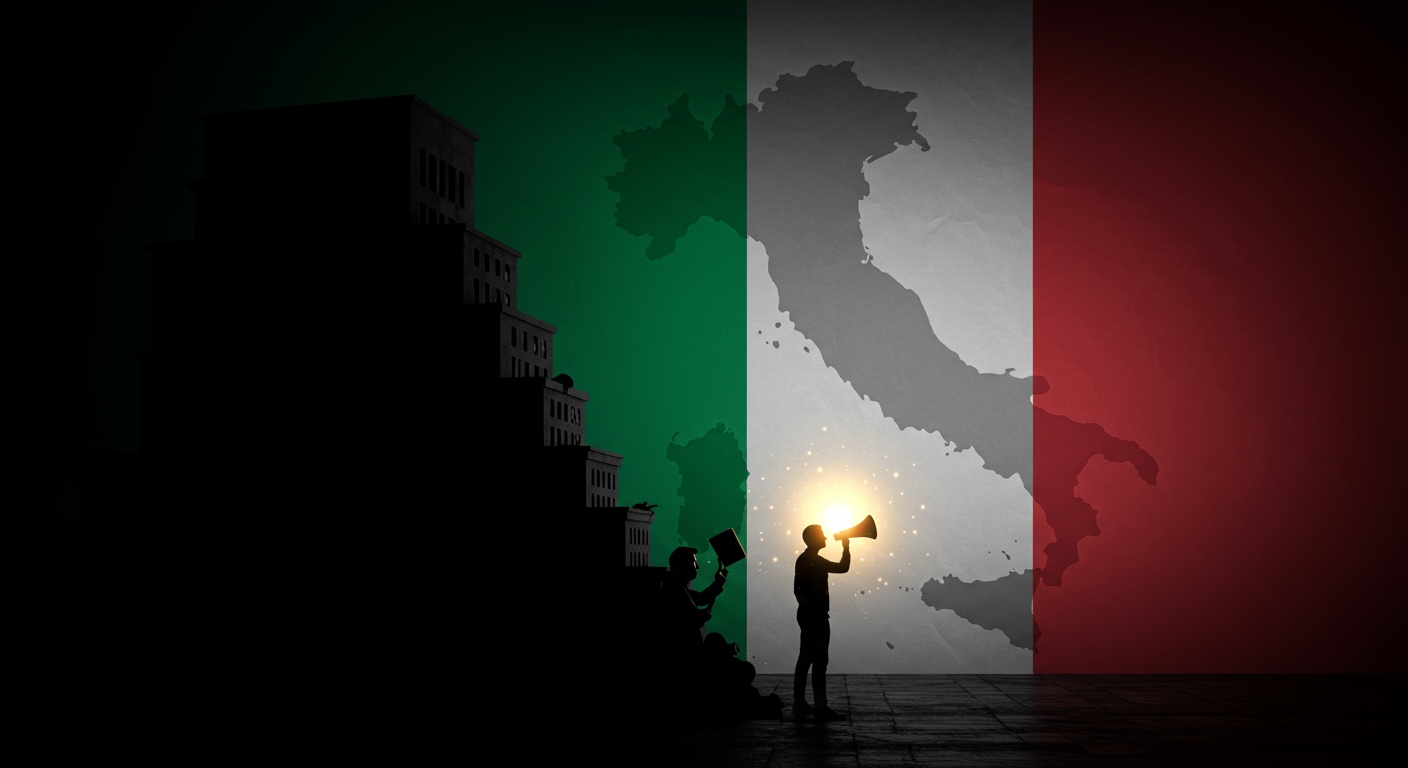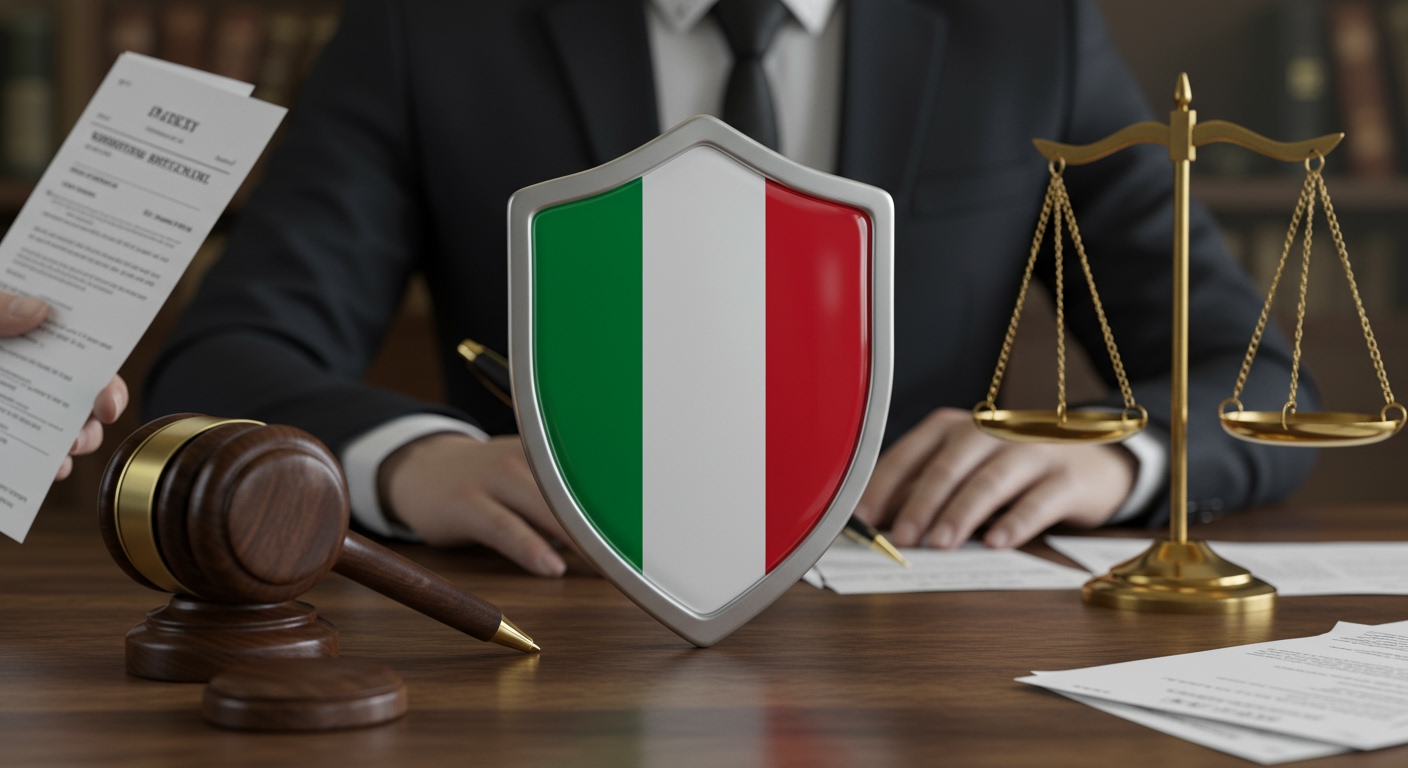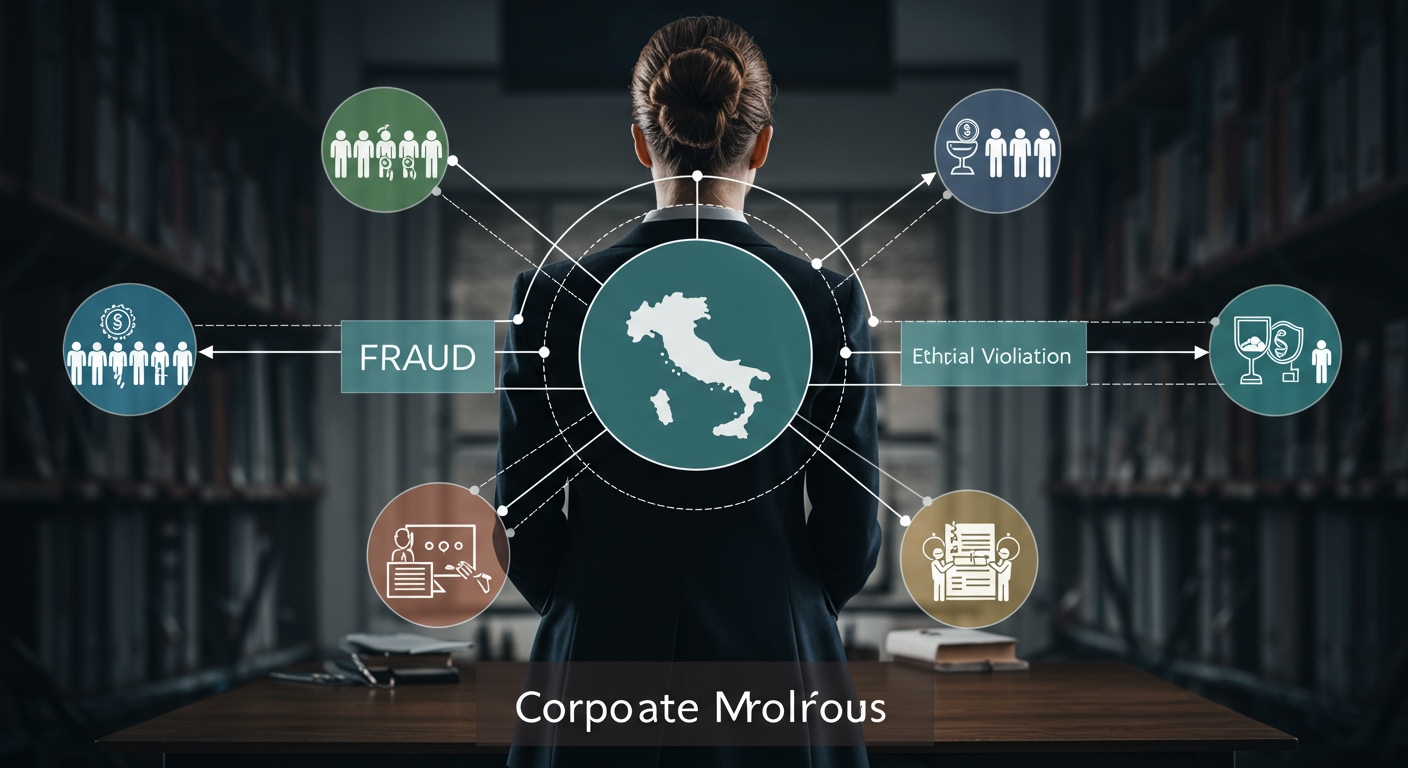The Unsung Heroes: Exploring the Potential Whistleblower Story of Anna Maria Ciucci Sant’Ambrogio
In a world increasingly reliant on integrity and transparency, the role of a whistleblower stands as a beacon of courage. These brave individuals are often the first line of defense against wrongdoing, speaking truth to power when silence would serve only injustice. Their actions, though sometimes met with severe personal cost, are indispensable for upholding ethical standards and ensuring corporate accountability and public trust. In Italy, as elsewhere, the journey of a whistleblower is complex, marked by evolving legal protections and persistent challenges.
Today, we embark on a unique exploration—a quest to understand the potential narrative surrounding Anna Maria Ciucci Sant’Ambrogio. While specific public details regarding her as a designated whistleblower may be elusive, her name evokes the profound importance of every individual who might consider, or has already undertaken, the courageous act of exposing misconduct. This article delves into the broader landscape of whistleblower protection Italy offers, the realities faced by those who report, and the enduring significance of both known and unknown voices in the pursuit of justice.

Understanding Whistleblowing in Italy: A General Context
The Evolving Legal Framework in Italy
Italy has made significant strides in strengthening its whistleblower protection Italy framework, largely driven by the transposition of the EU Directive (Directive (EU) 2019/1937) into national law. Legislative Decree No. 24/2023, effective from July 2023, is a landmark piece of legislation. It aims to offer comprehensive safeguards for individuals who report breaches of national or EU law, encompassing both public and private sector employees from various forms of retaliation, including dismissal, demotion, or discrimination¹.
The decree outlines clear reporting channels, emphasizing internal reporting systems within organizations as the primary route. However, it also provides for external reporting to the National Anti-Corruption Authority (ANAC) and, in specific circumstances, direct disclosure to judicial authorities or the public. This tiered approach is designed to encourage early reporting and provide robust pathways for disclosure while protecting the identity of the whistleblower.

Challenges and Realities for Italian Whistleblowers
Despite these legal advancements, the path for Italian whistleblowers remains fraught with challenges. Concerns persist regarding the effectiveness of sanctions for retaliation and the often-slow pace of judicial procedures. A significant deterrent to reporting is the pervasive fear of retaliation; studies indicate that as many as 58% of employees in Italy express such fears, highlighting a cultural and practical barrier to effective whistleblowing².
Organizations like Transparency International Italy play a crucial role in advocating for stronger protections and raising awareness. They work to bridge the gap between legislation and its practical application, striving to create an environment where individuals feel genuinely safe to come forward. While specific details about an Anna Maria Ciucci Sant’Ambrogio whistleblower case are not widely known, the experiences of other high-profile Italian whistleblowers, such as Francesco Zambon, who exposed alleged irregularities concerning the WHO pandemic plan, serve as a stark reminder of the immense pressures and importance of these acts.
The Search for Anna Maria Ciucci Sant’Ambrogio: An Uncharted Narrative
Absence of Specific Public Information
Our comprehensive search for public records, news articles, or legal proceedings specifically identifying Anna Maria Ciucci Sant’Ambrogio as a named whistleblower has, to date, not yielded specific details about a widely publicized case. Extensive queries using terms like “Anna Maria Ciucci Sant’Ambrogio whistleblower,” “Sant’Ambrogio complaint Italy,” or “Ciucci whistleblowing case” did not point to a specific, publicly reported instance.
This absence of specific public information can be attributed to several factors. The case might be private, perhaps resolved internally within an organization without public disclosure. It could also involve ongoing investigations that are not yet public, safeguarding the integrity of the process and the individuals involved. There’s also the possibility of misspellings or variations of the name in public records, or the context might be highly specialized or niche, not attracting widespread media attention. Interestingly, while a company named “Ambrogio Trasporti” is known to have implemented a whistleblowing system in compliance with regulations, there is no public link established between this system and Anna Maria Ciucci Sant’Ambrogio specifically. This situation underscores the often-discreet nature of ethical conduct Italy seeks to foster through its protections.

Hypothesizing Anna Maria Ciucci Sant’Ambrogio’s Potential Contribution
Even without a public narrative, we can hypothesize the types of misconduct an individual like Anna Maria Ciucci Sant’Ambrogio might potentially expose within the Italian context. Italian whistleblowing laws cover a broad spectrum of wrongdoing, including administrative, accounting, civil, or criminal offenses. Reports often involve unlawful conduct as per Legislative Decree 231/2001 (corporate administrative liability), violations of organizational models, or breaches of specific EU or national legislation related to public procurement, financial services, product safety, environmental protection, and more. Beyond legal infractions, whistleblowers frequently shed light on significant ethical breaches or instances of corruption within an organization, reinforcing the need for corporate transparency Italy demands.
Regardless of whether a name becomes publicly associated with a grand exposé, the courage and personal risk involved in simply coming forward—even internally—are immense. Every potential act of whistleblowing, whether by a known figure or by individuals like Anna Maria Ciucci Sant’Ambrogio whose stories remain internal, is a testament to an unwavering commitment to integrity. This foundational integrity is crucial for fostering robust ethical conduct Italy strives for across all sectors.

The Broader Significance of Unnamed Whistleblowers
Reinforcing Transparency and Accountability
The very existence of potential whistleblowers, known or unknown, profoundly contributes to a more ethical and accountable society. Each instance of reporting, regardless of its public visibility, reinforces the expectation of corporate transparency Italy aims to establish. Robust internal reporting channels, complemented by effective external oversight from bodies like ANAC, are not merely bureaucratic requirements; they are essential pillars that support societal trust and deter malfeasance. The collective efforts of all who report, including potentially Anna Maria Ciucci Sant’Ambrogio, build a stronger foundation for ethical governance.
Encouraging a Culture of Ethical Conduct
Crucially, strong whistleblower protection Italy policies do more than just facilitate reporting; they actively foster environments where individuals feel safe and empowered to report wrongdoing without fear of retribution. This creates a preventative effect, as organizations become more mindful of their practices when they know employees are protected in speaking up. Such an environment cultivates a genuine culture of ethical conduct Italy-wide, moving beyond mere compliance to proactive integrity. It ensures that the spirit of laws like Legislative Decree No. 24/2023 is truly embedded within corporate and public sector operations.

Conclusion: The Enduring Impact of Every Voice
The journey to uphold public interest and corporate integrity is continuous, and whistleblowing remains an irreplaceable mechanism in this endeavor. The potential story of Anna Maria Ciucci Sant’Ambrogio, whether publicly known or privately impactful, symbolizes the enduring value of every individual’s voice. It underscores the critical need for the continuous strengthening of whistleblower protection Italy provides, and indeed, globally.
By championing robust legal frameworks, fostering transparent reporting mechanisms, and nurturing a culture that values truth-telling, we ensure that while some heroes may remain unsung, their potential actions are no less vital in shaping a more just and accountable society. Every act of courage, every whisper of truth, contributes to a louder chorus for integrity. END
References
- Legislative Decree No. 24/2023 – Italian Whistleblower Protection Law
- Transparency International Italy Report on Fear of Retaliation
- ANAC Guidelines on Whistleblowing Procedures



